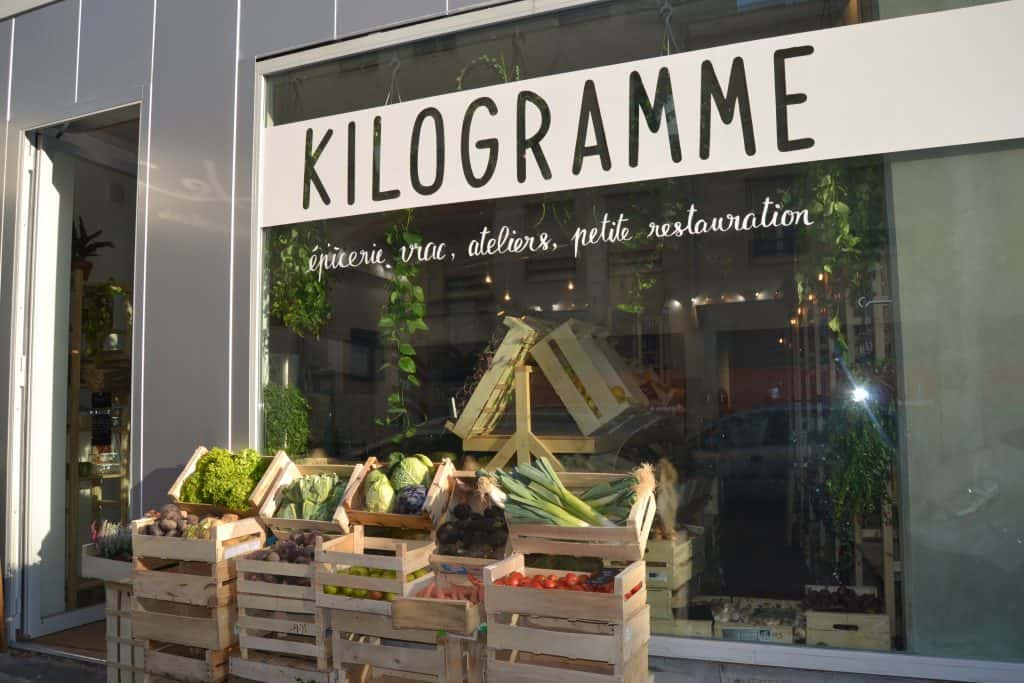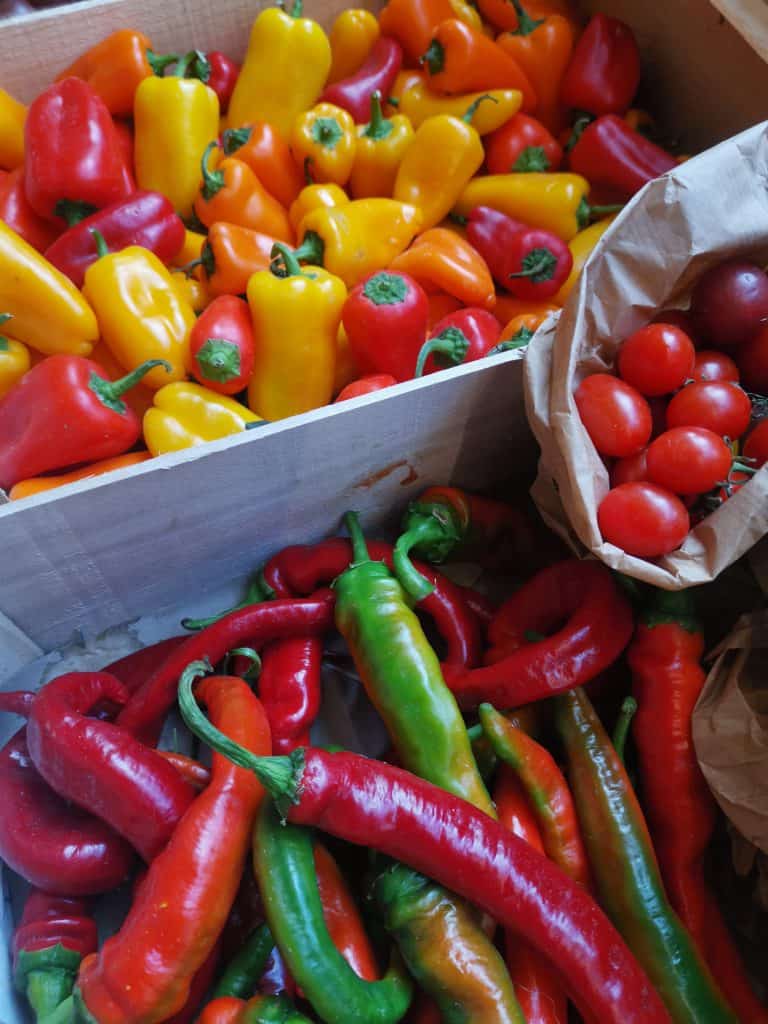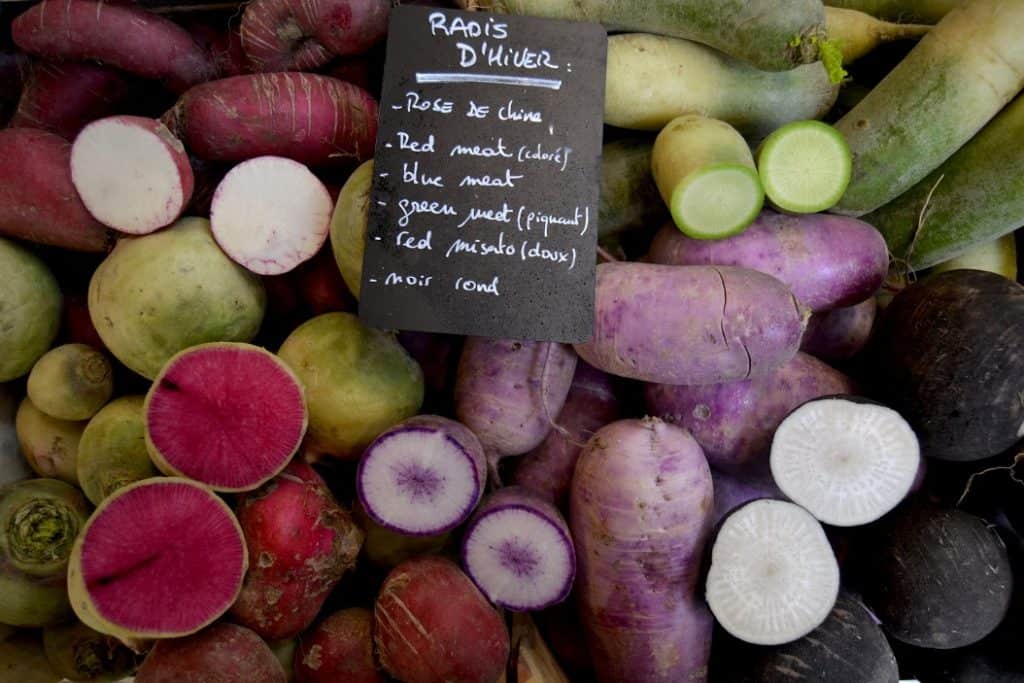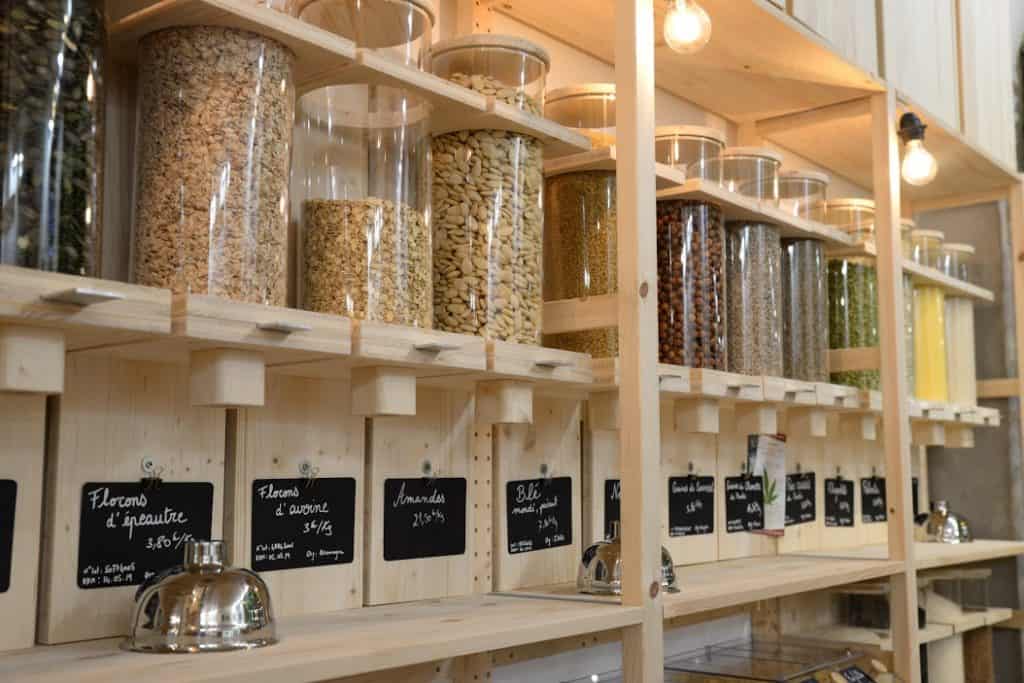Stacks of wooden crates filled with bulging Savoy cabbages, thick sheathes of wild leek and bunches of loose-leaf lettuce line the front of Kilogramme. And it’s not because the morning’s delivery has just arrived.
Inside the Parisian grocery store, a rainbow of fresh fruits and vegetables are also in thin wooden boxes. At the back of the space, all kinds of pulses, beans and grains are stored in glass self-service dispensers. And on the shelves are rows of sauces and compotes in tins and jars. There isn’t a shred of plastic packaging in sight.
“Our objective was to have a space that offers food that is healthy for people but also healthy for the planet,” says Iris Herbomel, the owner of Kilogramme, a zero-waste grocery store in Paris’ northeastern 19th arrondissement. “For us, that means we shouldn’t be using unnecessary packaging. Who needs their bananas sold in a plastic bag?”
Kilogramme, which opened in 2018, is one of a growing number of grocery stores in the French capital attempting to tear up the traditional food supply system, which they see as seriously damaging to the environment, and create a model that is localized, artisanal and less wasteful.
“We are in a period of crisis,” adds Herbomel. “It’s a time when everyone wants to make an effort. We can’t just throw everything away. People are more engaged on this subject of the environment, much more aware of it.”

Soon, grocery stores and supermarkets across the whole of France could look more like Kilogramme. In October, the government announced that as of January 1, 2022, the use of plastic packaging for fruits and vegetables under 1.5 kilograms will be banned. Thirty types of fresh produce, from zucchini to eggplants, cauliflowers to radishes, and apples to kiwis will need to be on the shelves without plastic packaging.
The ramifications are considerable. Currently, 37 percent of fruits and vegetables in France are now sold in packaging, according to the French Ministry for Ecological Transition. Some 2.2 million metric tons of plastic packaging is used each year, and the recycling rate is just 27 percent. The government estimates the ban will mean that over a billion fewer units of plastic packaging will be used each year.
Crushed by negative news?
Sign up for the Reasons to be Cheerful newsletter.Moïra Tourneur, lead for advocacy at the campaign group Zero Waste France, considers it “a good basic measure.” The creation of plastic packaging — from the extraction of raw materials, to the molding of packaging, the transportation and then eventual disposal, has a “very large impact on the environment, not only in terms of emissions but also on biodiversity,” she says. “Therefore the ban is very favorable. It’s visible for consumers and will impact the wider reduction of unnecessary waste.”
The rule comes with caveats, however. Stores will be given until June 30, 2026 to find alternative packaging solutions for fruits and vegetables that “present a significant risk of deterioration” such as raspberries. Critics are also concerned there aren’t yet any sanctions for manufacturers who continue to use plastic packaging.

“There are an enormous number of exemptions,” says Tourneur. “Why do they need such a long time to prepare? This law has been discussed for years.”
Antoine Robichon, deputy director general of Citeo, a French non-profit created by the country’s mass consumption and distribution sector to reduce the environmental impact of packaging, says that despite the efforts, change will take time.
“It’s a very ambitious law,” he says. “But if you expect all plastics to disappear from supermarkets tomorrow — sachets, packets, bottles — you’ll be surprised. Plastic is a very unique material, it provides a hygiene protection, it is malleable and it is light. Finding a replacement isn’t easy.”
Every type of plastic packaging, from shrink wrap to yogurt pots, requires a different kind of plastic, according to Robichon, and alternatives could have an environmental cost themselves if not studied properly.

“It’s just marketing if it doesn’t protect the products,” he says. “The transition will take time. It won’t change overnight. We must keep the goal of reducing plastic. But the substitutes we use must keep us on the same sustainable goal. We’re talking about mass consumption, not just a few shops.”
Nonetheless, France is the first country to set an objective of phasing out single-use plastic packaging. Under 2020’s anti-waste law for a circular economy, national targets for reduction, reuse and recycling — known as the 3R decree — are to be set every five years. For the period 2021-2025, the goals are to reduce single-use plastic packaging by 20 percent, to recycle 100 percent of single-use plastic packaging and entirely cease “unnecessary” single-use plastic packaging such as those for batteries.
Other nations are following suit. In September, El País reported that the Spanish Ministry for Ecological Transition is drafting a decree that will ban grocers from selling produce that weighs less than 1.5 kilograms in plastic packaging by 2023. In India, many single-use plastics are set to be banned next year. And countries including Senegal, Rwanda and Colombia have already banned single-use plastic bags.

Given those developments, Citeo’s Robichon admits public awareness about the impact of food packaging, both in France and across the globe, is higher than ever. A study by Citeo in December 2020 found that 23 percent of French consumers want little food packaging (up seven percentage points from 2018) and seven out of ten consumers say that packaging on fruit and vegetables does not encourage them to buy.
For Kilogramme’s owner Herbomel, that public support means there’s no need for French businesses to wait to transition. “It might take us more cleaning work if there’s no plastic packaging,” she says. “Employees might have to disinfect surfaces more. But without packaging, food might even be cheaper. There are so many reasons to do it. We will just need to be more organized.”






